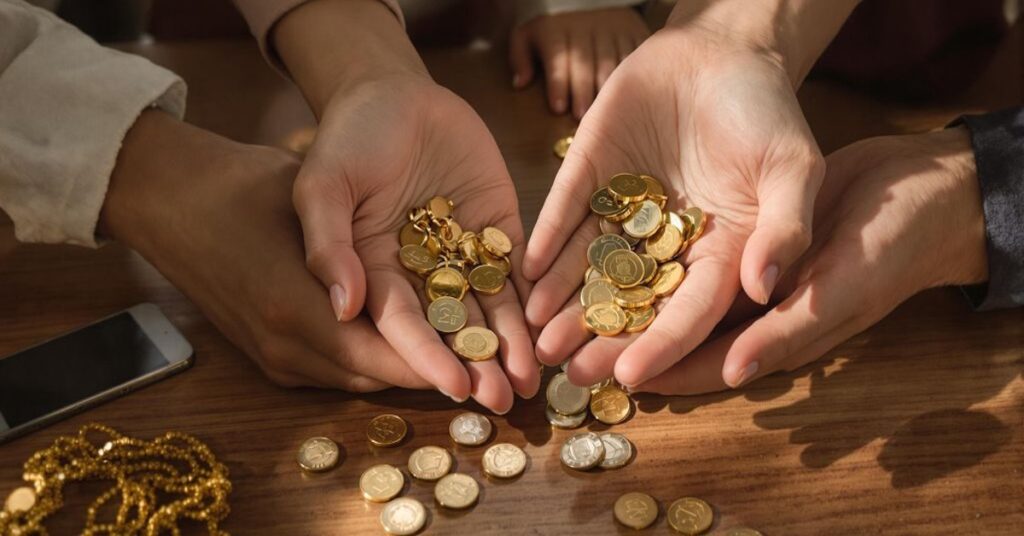Inheriting family heirlooms such as jewelry, antiques, and precious items often brings a mixture of emotions. These heirlooms are usually steeped in family history, carrying sentimental value. However, this emotional attachment can sometimes spark disputes when it comes time to divide the items. Whether it’s due to perceived unfairness in the distribution or differing views on the item’s worth, family disagreements over inherited valuables are not uncommon. So, how can you handle these disputes without compromising relationships or regretting your decisions? Here’s a guide to managing family disputes over inherited jewelry and valuables.

Recognizing the Emotional Value of Heirlooms
The first step in navigating any dispute over inherited valuables is recognizing the deep emotional connections that often come with these items. Family heirlooms aren’t just pieces of metal or stones—they’re memories, stories, and sometimes symbols of generations of hard work, love, and tradition. A piece of jewelry passed down from a grandparent, for instance, might carry immense sentimental value for one person, while another family member may feel equally attached to another item.
Understanding the emotional significance can help set the stage for more thoughtful and empathetic conversations. It’s essential for everyone involved to acknowledge the personal stories tied to these heirlooms. Having an open discussion about the importance of each item can go a long way toward easing tensions and allowing each family member to express their feelings.
Assessing the True Value of Heirlooms
When it comes to determining what’s fair, understanding the actual value of the heirlooms—both financially and sentimentally—is crucial. Often, conflicts arise because family members believe that they should receive certain items due to perceived value, which may not always align with market value.
The best way to ensure fairness is to get a professional appraisal of the heirlooms. A certified appraiser will assess items based on their weight, material, age, and condition. For example, an old piece of jewelry might have sentimental value but could also be worth a significant amount if made from valuable metals like gold or platinum. Appraisals help establish an objective price, which can be helpful when trying to divide assets fairly.
Furthermore, it’s important to consider the distinction between sentimental and financial value. Even if a piece isn’t the most valuable on the market, its emotional worth might outweigh its cash value. This understanding will help ease tensions when dividing items.
Exploring Your Selling Options
In some cases, the dispute over inherited items may be resolved through selling, particularly if multiple heirs are interested in the same item or if there are differing opinions about keeping versus selling. There are several routes to consider for selling inherited jewelry and valuables.
Auction Houses
Auction houses offer the potential for a higher sale price due to competitive bidding. This is particularly useful for rare or highly valuable items. However, auction houses charge commissions and fees, which can reduce the final sale price. It’s essential to understand these costs before committing to this option. Choosing a reputable auction house is crucial to ensure the best possible outcome.
Dealers and Collectors
If you’re looking for a quicker and more direct sale, consider selling to a dealer or collector who specializes in specific types of valuables. For example, a reputable jewelry dealer will likely offer a fair price for inherited jewelry. Working with trusted professionals can help you avoid any shady deals, ensuring that you get the right price for the item.
Online Marketplaces
Platforms like eBay or Etsy allow you to reach a wider audience of potential buyers. While selling online can often result in a quicker transaction, it comes with the risk of scams. If you choose to sell online, take clear photos, provide detailed descriptions, and ensure you understand the platform’s policies to avoid disputes.
Consignment Stores
If you’re unsure about selling an item immediately, consignment stores can be a good option. These stores sell your items for you, typically for a percentage of the final sale price. The advantage of consignment is that you don’t have to handle the selling process yourself, but the drawback is that it may take longer for the item to sell.
Preparing Heirlooms for Sale
Once you’ve decided to sell your family heirlooms, preparation is key. Properly cleaning and restoring the items can increase their value, so take care to handle them with respect.
For jewelry, avoid over-polishing or cleaning it too aggressively, as this could damage the item. Consider consulting a professional jeweler to ensure that any necessary repairs or cleaning are done properly. For antiques or furniture, a light restoration may be needed to bring out its best features. However, always be cautious with restoration work, as over-restoring an item can decrease its original value.
Additionally, having documentation about the item’s provenance—its history and authenticity—can add value and increase buyer confidence. If you don’t have official records, a family history or photo album detailing the item’s past can be helpful.
Handling Disputes: Fair Division of Valuables
When dividing heirlooms among family members, fairness is key. This can often be a challenging task, especially if multiple people have their eyes on the same item. The best approach is to set clear expectations early on and involve everyone in the decision-making process.
One way to fairly divide heirlooms is by establishing each family member’s preference. For example, if one person values a particular item more than others, they might receive it in exchange for financial compensation or other items of equal value. This way, everyone feels heard, and the process feels more equitable.
Another option is to let the items go to auction and divide the proceeds evenly among family members. This is particularly useful when emotions run high and a decision needs to be made swiftly without further disputes.
Preserving Family Relationships
Ultimately, it’s essential to focus on the bigger picture—family unity. While heirlooms are valuable, family relationships are far more important. Ensuring that each family member feels respected and heard during the process can help maintain harmony.
Create new traditions around the heirlooms, such as passing down the stories or memories associated with them. This can be an emotional way to honor the family legacy without causing further conflict.
Conclusion
Selling family heirlooms, especially jewelry and valuables, can be a difficult decision, but it doesn’t have to result in regret. By understanding the emotional significance of the items, getting proper appraisals, and having open discussions with family members, you can navigate this process with ease. Whether you choose to sell or divide the items, the key is fairness, respect, and clear communication.
If you find yourself in need of a professional appraisal for your heirlooms, DMK Metal is here to help. Our expert appraisers specialize in providing accurate evaluations to ensure you make informed decisions about your precious items. Reach out to us today for trusted advice and guidance throughout the process.
